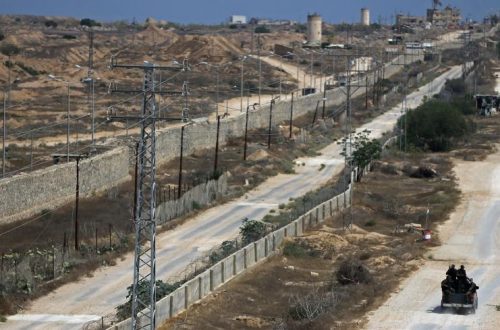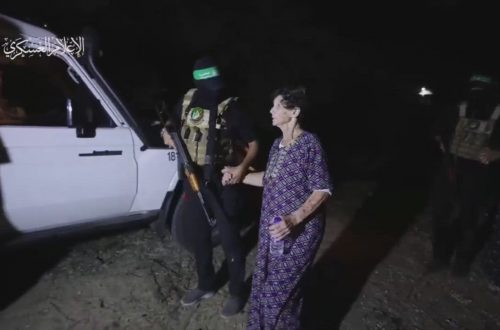The awful news about the discovery of the bodies of the three kidnapped Israeli teenagers has raised an all-too-common dilemma for Israel: that an emotionally-satisfying retaliation is not always an effective retaliation.
Writing for The Forward, J.J. Goldberg observes:
As usual, politicians on the right are pushing for a maximalist response, while military figures are warning against letting emotions guide policy and urging “focused” and “targeted” responses. Prime Minister Benjamin Netanyahu has repeatedly blamed Hamas for the kidnapping, and pointed to the Fatah-Hamas unity pact concluded last month as contributing to the terrorist act.
Military and security figures have quietly cautioned since fingers began pointing at Hamas that there was no concrete evidence the kidnappers were operating under instructions from Hamas higher-ups. Today for the first time they began speaking not quietly but openly, warning that attacking Hamas as an organization in response to the kidnapping would backfire, fail to deter future terrorism and serve Hamas’s goal of isolating and delegitimizing Israel internationally.
The three boys, Eyal Yifrah, 19, Gil-Ad Shaer, 16, and U.S. citizen Naftali Fraenkel, also 16, were kidnapped at around 10 p.m. June 12 while trying to hitchhike home for the weekend from their West Bank yeshivas. The area, under Israeli military administration, has been the scene of Palestinian violence for decades but has been relatively quiet for the past few years. They were apparently killed shortly after they were taken.
Knesset speaker Yuli Edelstein called for Israel to launch a “war on terrorism.” Knesset member Miri Regev, one of the hardest-line members of Likud called for a wave of “targeted eliminations” of Hamas leaders in Gaza.
On the other hand former Mossad director Danny Yatom urged carefully distinguishing between terrorists responsible for the murders and politicians whose ideology may or may not have inspired the murderers.
In a phone interview on Ynet television Yatom urged focused actions to punish and deter future would-be terrorists, including demolishing the family homes of the perpetrators. The Shin Bet and Israel Defense Forces have identified two reputed Hamas activists from Hebron, Marwan Kawasmeh, 29, and Amar Abu-Eisha, 33, as the suspected perpetrators.
Yoni Fighel, a retired colonel in Israel’s military intelligence who now heads the International Policy Institute for Counter-Terrorism at the Interdisciplinary Center in Herzliya, said it was “irresponsible” to try to pin guilt for the kidnappings on Hamas in Gaza. He also questioned home demolitions, telling Yatom as they both knew, it’s been demonstrated that they “don’t work” as deterrents to further terrorism.
“The conflict with Hamas is a political one,” Fighel told Ynet. “They are working to delegitimize us in the international arena and we need to avoid falling into their trap by taking steps that would serve their goal. It would irresponsible to try and punish Hamas leadership in Gaza for this incident.”
Yatom and several other security figures urged the re-arrest of former prisoners released in the Gilad Shalit deal and trying, within the limits of the law, to find a reason to return them to prison to complete their terms. They warned against expelling West Bank leaders to Gaza, saying that without some proven crime, expulsion would violate Israeli and international law.
Of course Israel needs to respond to these murders. But how to respond is a matter for clear-headed consideration. It’s irresponsible– and damaging to Israel– to assume that the most brutal, wide-ranging and punishing response is necessarily the best one.


